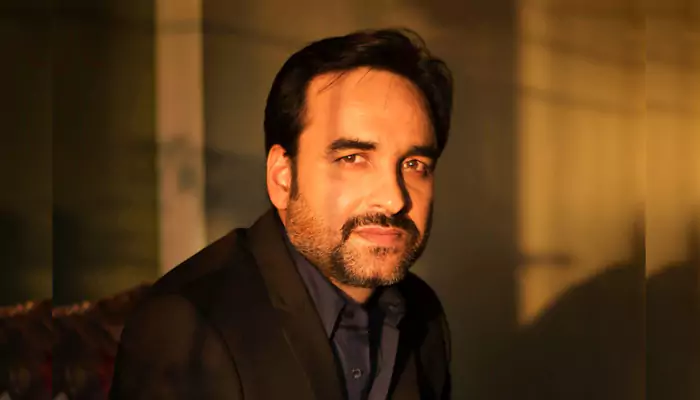
From hotel kitchens to the heights of cinema, his journey is a parable of grit and grace
The clatter of cutlery, the aroma of freshly baked bread, and the quiet bustle of a hotel kitchen in Patna—few would imagine this setting as the training ground for one of India's most acclaimed actors.
Yet in the early 1990s, before Mirzapur and Gangs of Wasseypur made him a household name, Pankaj Tripathi worked long nights at Patna’s Maurya Hotel, rolling dough and perfecting cake bases before rushing off to theatre rehearsals by day. On his 49th birthday, his return to the very place where he once toiled marks a full-circle moment of rare poignancy.
Raised in a modest farming family in Gopalganj, Bihar, Tripathi’s early life was characterised by simplicity and struggle. The son of a farmer, he once dreamed of a career rooted in stability—initially considering a career in medicine, later hotel management—before the stage began to call him. The hotel in Patna became his first foothold outside the village, a place that enabled him to support himself while pursuing the uncertain dream of becoming an actor.

The work was demanding but educational. Long nights in the kitchen taught him discipline, while the contrast of theatre rehearsals sharpened his resilience. What initially seemed like a simple survival job gradually became the crucible where he forged the patience and endurance that would later define his acting career.
In those years, Tripathi entered the hotel through the staff's back gate, unnoticed among dozens of workers. His duties included baking bread, preparing cake bases, and managing routine kitchen tasks.

Credit: Economics Times
Years later, as a celebrated actor, he returned to the same hotel, this time walking confidently through its grand main entrance. This symbolic shift—from the shadows of the back door to the spotlight of the front—illustrates the arc of his remarkable journey.
The journey from Patna to Mumbai was not straightforward. After his time at the hotel, Tripathi dedicated himself to theatre, enduring years of rejection before finally gaining admission to the esteemed National School of Drama. Mumbai presented new challenges, as roles there were limited and often minor.

Credit: India Today
Between 2004 and 2011, he appeared occasionally in films, mostly in fleeting parts. Nevertheless, he persisted, carrying with him the quiet resilience he had developed during those hotel nights, when exhaustion was constant but surrender was never an option.
His fortunes changed markedly with Gangs of Wasseypur (2012). The role of Sultan Qureshi demonstrated his natural screen presence and ability to convey authenticity even in morally complex roles.
From that point, Tripathi’s career flourished. Performances in Masaan, Newton, and Stree solidified his reputation, while the growth of streaming platforms made him a household name through series like Sacred Games and Mirzapur.

Unlike many of his peers, Tripathi never depended on spectacle or flamboyance. His strength lay in his subtle performances, which added depth and humanity to each role. It was this very trait—grounded in his life experiences—that made him relatable to millions.
Despite widespread recognition, Tripathi's humility remains intact. His past is not something he has shed but something he carries with pride. Returning to the Patna hotel, he met former colleagues and relived memories of the nights he once toiled there. For him, success has never been about erasing those years but about honouring them as the foundation of his life's journey.
As he celebrates his 49th birthday, Pankaj Tripathi represents more than cinematic success. He embodies resilience, humility, and the dignity of labour.